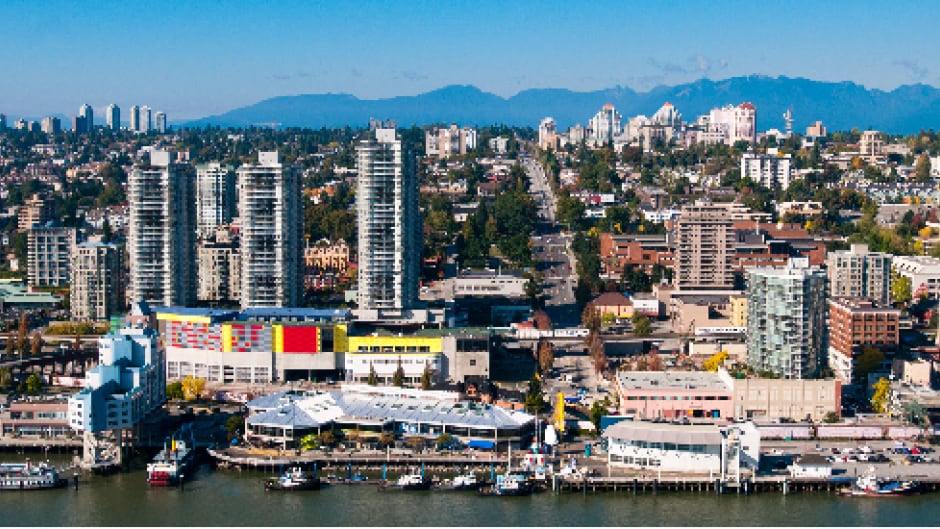 | Saturday, June 25, 2022
Reading this online? Sign up to get this delivered to your inbox every Friday. | | Why New Westminster’s mayoral race could look a little like other left-wing cities this October | | |  | | | New Westminster is the oldest municipality in British Columbia, but last election it was also one of the dullest.
Incumbent Mayor Jonathan Cote was re-elected with more than 70 per cent of votes. Every incumbent councillor was easily re-elected as well.
If you’re a left-leaning voter, that result likely pleased you. In the last four years, New Westminster continued to push forward on affordable housing, climate and reconciliation policies that are much more advanced than most municipalities of its size in Canada.
But there are others who believe New West council has been a de facto one-party rule for too long — or at least a one-viewpoint rule, with all winning candidates endorsed by the city unions — and see an opening with Cote deciding not to seek a third term.“[Residents] want to see value for their tax dollars,” said Ken Armstrong, mayoral candidate for the New West Progressive Party, who were shut out of council in their inaugural campaign four years ago.
“We appreciate the need for affordable housing … we need to work with federal and particularly provincial partners in that regard, but we can't overlook the fundamentals of keeping the streets safe, the streets maintained, the sidewalk maintained and the parks maintained.”
It’s also an argument that councillor and mayoral candidate Patrick Johnstone, running implicitly as Cote’s successor, rejects.
“We are investing in infrastructure … new parks and playgrounds and things that make the city livable. But we're also investing a bunch of money in the unsexy stuff: sewer separation, upgrading our water systems, upgrading our electrical substations,” he said, while mentioning New Westminster’s creation of rental-only zoning and fighting legal challenges to its renoviction bylaws.
“But I think the last couple of years through the pandemic and through the impacts of climate change, people recognized that a lot of the things we didn't think were city responsibility end up becoming things that the city really has to address.”
Johnstone is running with Community First New West, a new party that includes four of the six councillors elected four years ago.
Given the political culture of New Westminster, they are likely the favourites.
But arguments raised by Armstrong are being leveled against a number of left-wing city halls across British Columbia these days: the basics are being ignored, people feel less safe, and municipal governments can’t focus too much on issues overseen by Victoria and Ottawa.
It will be interesting to see how voters respond to that critique at the ballot box this October.
|  | | |  | | | 1. Vancouver | | | After dozens of amendments over weeks of debate, Vancouver's Broadway Plan has been passed by a 7-4 vote. In theory, it guides the decisions that will be made across a large portion of the city for years to come. But given the time between now and the election, and the number of changes that could come after staff report back on different amendments (including on vacancy control and freezing development on side streets), a lot could change depending on who gets elected four months from now.
Read more | | |  | | | 2. Public housing corps. | If one of the main difficulties with governments providing affordable housing is the need for private corporations to make money off its construction and development, then why haven't governments gotten more involved in construction and development themselves? That's part of the thinking behind a new announcement at TransLink, and part of current discussions in Burnaby.
Read more in The Tyee | | | |  | | | 3. Election watch | The Mayor of Gibsons became the latest local leader to say he wouldn't seek re-election, though experienced politicians in other parts of B.C. announced leadership bids, including in Kamloops (a councillor) and Maple Ridge (a former MP). But the biggest departure is likely that of Charlayne Thornton-Joe, a Victoria councillor for 20 years, further making the city's election wide open. Read more in the Times Colonist | | | | | |  | | | 4. Metro 2050 | The road to getting municipalities across the region to agree to the once-a-decade growth strategy laid out by Metro Vancouver is looking increasingly tricky, as White Rock joined Surrey in voicing their opposition to the current plan. Local governments wanting unfettered control over their land-use decisions is nothing new, but it'll be interesting to see how this gets resolved.
Read more in the Cloverdale Reporter | | | |  | | | 5. Lytton | Nearly one year after a catastrophic fire burned down most of the town, funding announcements are coming more quickly to Lytton these days, with another $21 million committed this week. But with the anniversary approaching, many residents continue to wonder when tangible timelines will be announced, that allow them return to their once and hopefully future home. Read more in National Newswatch | | | | | | Share this newsletter | | or subscribe if this was
forwarded to you. | | | | That's it for this week! In the meantime, check out the latest headlines at cbc.ca/bc and follow our municipal affairs reporter Justin McElroy on Twitter. And if you have any questions you might want answered in a future mailbag, drop Justin a line at metromatters@cbc.ca. | | | |
